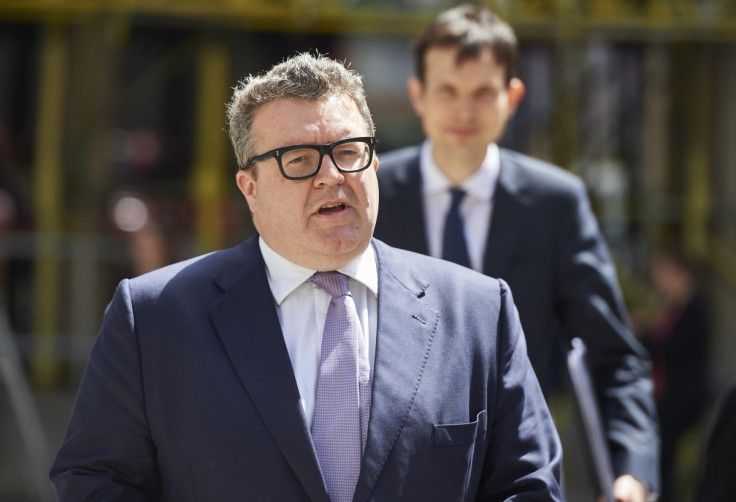Labour Syria row: Tom Watson asks David Cameron to explain strategy for air strikes

Labour Deputy Leader Tom Watson has written to the prime minister seeking clarification on two areas which a "large section of Labour MPs remain unconvinced about" regarding the proposed airstrikes in Syria. Watson told David Cameron he believed the PM had not given enough time to build a consensus on whether launching air strikes into Syria was the correct way to combat Islamic State (Isis).
MPs are to vote on whether the UK should extend military action against the jihadist group in Syria after a debate in the House of Commons on 2 December. Labour Leader Jeremy Corbyn has announced that he will allow Labour MPs a free vote and not impose a party whip, meaning Cameron looks more likely to secure enough votes to proceed with his plans to launch air strikes in the war-torn country. According to the Huffington Post, 99 of Labour's 231 MPs will vote to launch missiles into Syria.
Watson, who is one of Corbyn's shadow cabinet team who is expected to go against the leader's views and vote in favour of air strikes, told Cameron there was a compelling case for action against IS in Syria and previous air strikes in Iraq had weakened their position there.
However, Watson has asked Cameron for clarity in two areas even though he said many MPs agreed with the compelling moral and legal case for action. He wrote: "Firstly, unlike in Iraq where there is a clarity of purpose and action by government-led ground forces, it remains uncertain what the ground strategy in Syria would be and whether there is a coherent and capable ground force that could capitalise on the strategic advantage air strikes would give them.
"This has been raised by colleagues in every political party. Your assertion that experts say there are 'approximately 70,000 Syrian opposition fighters on the ground who do not belong to extremist groups' has been widely challenged. Please could you explain, in detail, how this figure was compiled? The chair of the Defence Select Committee said in the chamber that he was extremely surprised by this figure. His views carry great weight on both sides of the House. Are you able to explain to him, to me and others how the 70,000 figure can be used with confidence and provide more detail about where they are located?"
Watson said that Cameron must also explain how he hoped to secure lasting peace in the area once the air strikes had begun. He wrote: "There are many MPs who understand that a transitional government in Syria can only come about if IS forces no longer hold territory. But they are yet to be convinced that there is a meaningful political process in place that can pull together the disparate groups who will need to sign up to it if there is to be a lasting peace.
"I do not believe you have given proper time to build consensus. As Jeremy Corbyn has made clear, parliament needs more time to make a considered decision on whether air strikes can take place. Only then can MPs from all parties confidently articulate that decision to their constituents and the British people."
© Copyright IBTimes 2024. All rights reserved.






